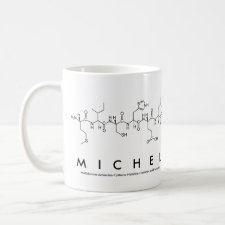
Authors: Becker JJ, Gagné MR
Article Title: Imprinting chiral information into rigidified dendrimers.
Publication date: 2003
Journal: Organometallics
Volume: 22
Issue: (24)
Page numbers: 4984-4998.
DOI: 10.1021/om0340387
Abstract: Chiral, polymerizable P2Pt(S-BINOL) metallodendrimers constructed of flexible benzyl ether repeat units were cross- linked/imprinted into highly porous and rigid organic polymers (methaerylate-based). Two meta-Cl substituents on the P-Ar portion of the metallomonomer reduced BINOL loss during polymer formation to levels that enabled site accessibility to be measured by the quantitation of S-BINOL cleavage (HCl) and BINOL/Br2BINOL exchange reactions. In general, the total site accessibility decreased as the generation number or steric bulk of the dendritic arms increased, which was offset by an increased effectiveness of the chiral imprint as the size of the dendritic arms increased. Thus polymerizable dendritic metallomonomers can be copolymerized into highly cross-linked organic polymers, and a memory for the absolute stereochemistry of the imprint ligand retained and used to affect the stereochemistry of reactions at the metal in the core



Join the Society for Molecular Imprinting

New items RSS feed
Sign-up for e-mail updates:
Choose between receiving an occasional newsletter or more frequent e-mail alerts.
Click here to go to the sign-up page.
Is your name elemental or peptidic? Enter your name and find out by clicking either of the buttons below!
Other products you may like:
 MIPdatabase
MIPdatabase









